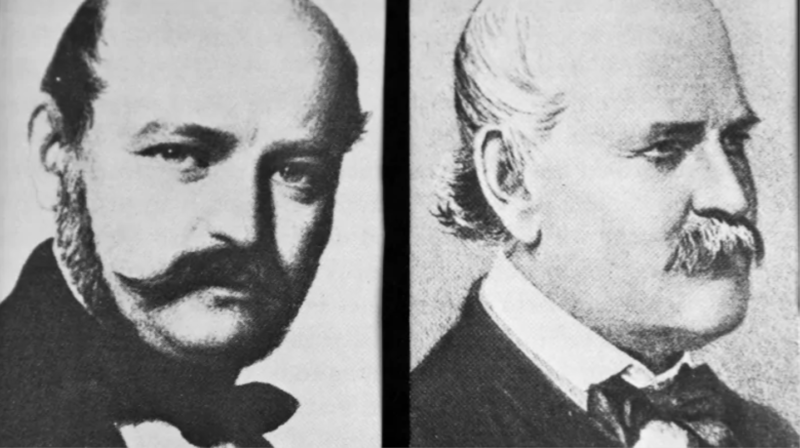Sheeple Facts
We’re headed toward a decentralized world governed by consensus as expressed through open source protocols and smart contracts. The battle is not about left vs right, conservative vs liberal where either side would have you believe that content cleanly bisects into Truth and Misinformation.

By Capital Thinking • Issue #905 • View online
“Whoever practices this prophylaxis will experience the pleasure, not from time to time to lose every third or fourth patient from puerperal fever, but perhaps lose only one in four hundred”
— Ignaz Semmelweis, 1860, trying to convince the medical profession that hand disinfection before conducting medical procedures would save lives
Big Tech are supposed to be the plumbers, not patricians of internet discourse
When dissent is misinformation, fallacies become facts
My friend Doug McKenty, who does The Shift podcast was just suspended by Mailchimp. He’s been getting more vocal about what he calls healthcare freedom (read: vaccine passports), and something about that coloured outside the lines.
Mailchimp, an email list provider, is known for doing this. You effectively pay Mailchimp to curate what you can or cannot say to your own email subscribers. You’re using their mailservers, and in their mind that’s what gives them the right and the moral authority to monitor the content of your communications to your own audience.
In my book Unassailable: Protect Yourself From Deplatform Attacks, Cancel Culture and other Online Disasters (the e-book version has been available for free for some time now) I devote an entire chapter to the machinations of the Big Tech and how they overstep the bounds of rationality when it comes to deciding what is within their purview and what isn’t, or shouldn’t be.
No tech company should be enforcing their Terms of Service based on what they think their users have done or might do off of their own platforms. Yet Twitter, Facebook, Patreon and who knows who else do that.
A mailer company like Mailchimp has no business even parsing the content of their paying clients, let alone summarily judging whether it is misinformation or not. Mail providers should care about two things and two things only:
- The list is clean (opt-in and confirmed)
- The mailings aren’t infected with any kind of malware.
That’s it. Beyond that it really isn’t their business and it’s the height of grandiosity and hubris to think that it is.
Patreon’s CEO Jack Conte describes how their Trust and Safety Team remove all subjective elements from the decision to demonetize somebody’s content by evaluating them based on “Manifest Observable Behaviour”:
“Manifest observable behavior is to remove personal values and beliefs when the team is reviewing content. It’s a review method that’s entirely based on observable facts: what has a camera seen, what has an audio device recorded. It doesn’t matter what your intentions are, your motivations, who you are, your identity, your ideology. The trust and safety team only looks at Manifest Observable Behaviour. We get rigorous and specific because we’re talking about removing a person’s income. The authority to take away a human being’s income is a sobering responsibility. It is not something to be done on a whim.”
What does this process resemble? It actually sounds a lot like a legal proceeding, albeit one that’s entirely one-sided, devoid of any semblance of due process or legal protection under the law, and probably carried out by teams of purple-haired Millennials with nose hoops and personal pronoun mood-rings.
When tech companies take it upon themselves to arbitrate what is or isn’t misinformation, or taking action based on events that occur outside of their own platforms what they are doing, at its core, is adjudicating international law. Do you really want your domain registrar or your web host doing that?
These companies think they’re the patricians of internet discourse. The reality is they’re the plumbing.

Photo credit: Michal Matlon on Unsplash
